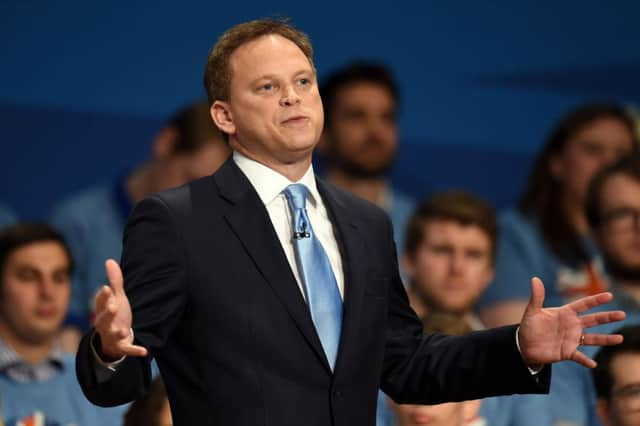Jane Bradley: Shapps fell into brand confusion trap


One political nerd in the corner nudges his buddy: “That guy looks familiar. He looks a bit like… no, it can’t be. But yes, there is a striking resemblance to that Tory party chairman bloke. Maybe they’re related.”
For while having a pen name is one thing, pretending to be someone else is a different kettle of fish altogether. But the lines are undoubtedly blurred. Contacts in the publishing industry, where pseudonyms and alter egos are ten a penny, tell me that people have a wide range of reasons for publicly wanting to be someone other than themselves.
Advertisement
Hide AdAdvertisement
Hide AdIt may be that someone who already has their name who is in the public eye; they could, like Fifty Shades author EL James, aka Erika Mitchell, be writing content which they are worried about their friends and family reading; or they may have an unusual name which they think readers will find difficult to remember.
Others may write different types of books which appeal to very different demographics of readers – and don’t want their dedicated followers to accidentally pick up something of the wrong genre and be disappointed. Indeed, fans of writers who don’t do this can sometimes face nasty surprises when they find they are not reading what they expected.
A friend tells me how, as a child, she loved American author Judy Blume, who penned a lot of innocent books for the eight to 12 age group. Imagine her surprise – and that of her mother – when, at the tender age of ten, she found a book she’d never read before by her favourite writer, tucked away on the library shelves. It was called Forever and it dealt with, well, much more adult problems than she was ready to read. Her mum was not happy – and the librarian, who had popped the book back on the wrong shelf, faced her wrath. If Blume had opted for a pen name for her young adult novels, this could have been avoided.
But the problem comes when they need to be seen in person. Do authors wear a disguise when they appear on a book tour as their alter ego? Apparently not. One publisher tells me that many authors are open on their personal websites that they have two names. They use the same author photos to promote books by both “people”. Split personalities indeed.
Sophie Kinsella, an author of popular chick-lit novels whose photograph is often emblazoned on the jacket of her books, also writes literature for an older audience under the name of Madeleine Whickham. But what happens when she appears in public? Does she introduce herself as her better known moniker of Sophie? Or Madeleine (which is actually her real name)? The author formerly known as Sophie? It’s a tricky one. Scottish children’s author Barry Hutchison has a solution – he tells his young audience that “Odin Redbeard” or “R Mageddon” – his two pseudonyms for his very different series of books – are too shy to speak to them and have asked him to fill in.
A few authors want to conceal their gender, in fear of putting off prospective readers. While in the 1800s, female authors were forced to do this to have their work taken seriously – Charlotte, Emily and Anne Brontë published as Currer, Ellis and Acton Bell – the tide has now turned, with some male authors writing about women worried that their gender would deter female readers. They may use initials instead of a forename, while author biographies would probably be quite vague and without a photograph. Of course, a quick google would probably reveal the truth, but can the average reader be bothered? And should they know who is writing their books? Does it matter?
The answer is that in this world of marketing, authors are no longer people, they are brands. Saleable brands. Similarly, Shapps is a brand too – the Tory party chairman and the slick businessman.
It’s just that I’m not sure which of his brands he thinks people would want to buy.